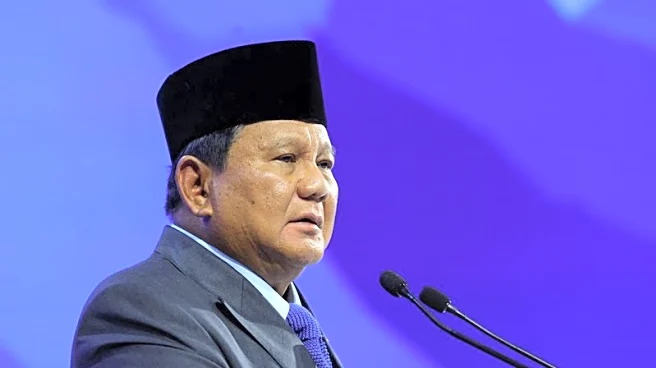What is the story about?
What's Happening?
Netflix has released a new docuseries titled 'Fit for TV: The Reality of the Biggest Loser,' which delves into the controversial practices of the reality show 'The Biggest Loser.' The series, which aired from 2004 to 2016, was initially a hit, drawing viewers with its dramatic weight loss transformations. However, the show has faced criticism for its treatment of contestants, including allegations of dangerous medical practices and a harmful portrayal of overweight individuals. The docuseries features interviews with former contestants, crew, and the show's medical advisor, Dr. Robert Huizenga, who expressed concerns about the physical challenges imposed on participants. Contestants were often pushed to their physical limits, leading to injuries and long-term health issues. The show’s trainers, Bob Harper and Jillian Michaels, have been accused of mistreating contestants, though they deny these claims.
Why It's Important?
The revelations from the docuseries highlight significant ethical concerns in reality television, particularly regarding the exploitation of participants for entertainment. The practices on 'The Biggest Loser' raise questions about the responsibility of producers to ensure the safety and well-being of contestants. The show’s focus on rapid weight loss and extreme physical challenges may have contributed to long-term health issues for participants, including metabolic damage and eating disorders. This scrutiny could lead to increased calls for regulation and oversight in reality TV production, impacting how future shows are developed and managed. The controversy also reflects broader societal issues related to body image and the portrayal of weight loss in media, potentially influencing public perceptions and health policies.
What's Next?
The docuseries may prompt further investigations into the practices of 'The Biggest Loser' and similar reality shows. There could be legal implications if former contestants pursue action against the producers for alleged mistreatment. Additionally, the entertainment industry might face pressure to adopt more ethical standards and transparency in reality TV production. Public and media scrutiny could lead to changes in how weight loss and health are portrayed on television, with a shift towards more supportive and realistic approaches. The response from audiences and stakeholders will likely influence the future of reality TV programming and its impact on participants.
Beyond the Headlines
The controversy surrounding 'The Biggest Loser' also touches on cultural attitudes towards weight and health. The show’s approach to weight loss reflects a broader societal obsession with thinness and the stigmatization of obesity. This has implications for public health messaging and the support systems available for individuals seeking to improve their health. The docuseries may contribute to a shift in how weight loss is discussed in media, encouraging more holistic and sustainable approaches. It also raises ethical questions about the role of entertainment in addressing serious health issues and the potential harm caused by prioritizing ratings over participant welfare.















